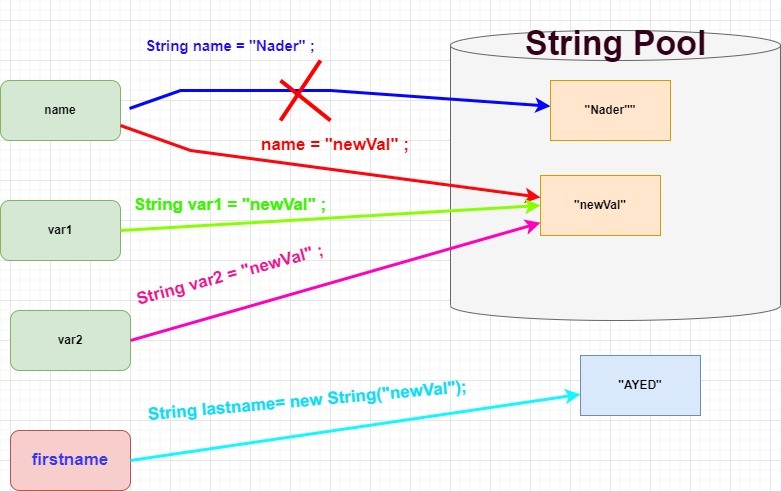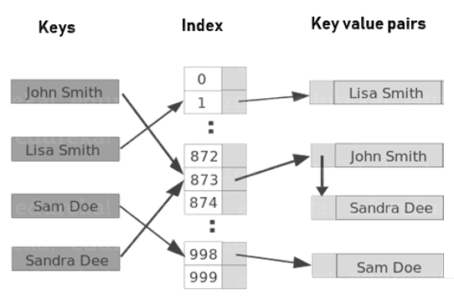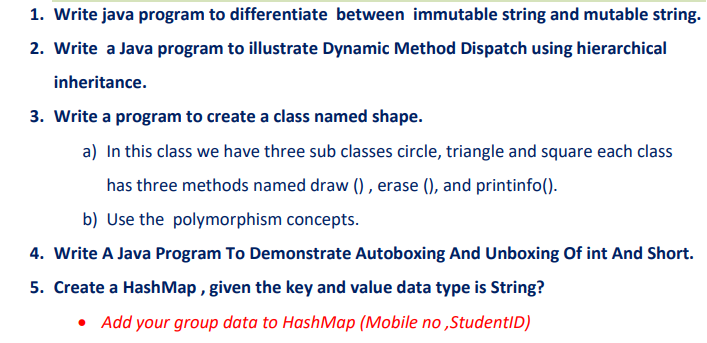Why Are Strings Immutable in Java? Comprehensive Overview for Beginners
Why Are Strings Immutable in Java? Comprehensive Overview for Beginners
Blog Article
What Is Unalterable Strings and Just How It Works
In the realm of shows, comprehending the principle of immutable strings is vital for creating durable and safe and secure applications. Unalterable strings refer to strings that can not be altered after they are produced, ensuring information stability and predictability within the code. This basic principle plays a critical duty in different programs languages and offers a special technique to handling information. By checking out the intricacies of how unalterable strings function, one can discover a world of advantages and opportunities that can elevate the high quality and effectiveness of software development.
The Fundamentals of Unalterable Strings
Immutable strings, as an essential concept in programming, are character series that can not be changed when they are created. This suggests that when a string is appointed a worth, that worth can not be modified. In languages like Python and Java, strings are immutable items, leading to different ramifications in terms of memory monitoring and information integrity.
Among the essential advantages of immutable strings is that they give a complacency in information manipulation. Because the web content of an immutable string can not be modified, it ensures that the initial data stays intact, lowering the threat of unintentional changes throughout program implementation (Why are strings immutable in Java?). This home also streamlines debugging processes, as programmers can trust that as soon as a string is specified, its worth will not be accidentally altered
When a brand-new string is produced based on an existing one, instead than modifying the initial string, the new worth is saved separately. Overall, recognizing the fundamentals of immutable strings is critical for grasping programming principles and maximizing code performance.
Benefits of Immutable Strings
Building upon the security and performance advantages of unalterable strings, their advantages extend to boosting code dependability and streamlining concurrent shows jobs. By being immutable, strings can not be customized after creation, which gets rid of the risk of unexpected adjustments in the information they store. This inherent immutability guarantees that when a string is produced, its value stays continuous throughout the program's implementation, lowering the possibilities of insects brought on by unexpected alterations.
Additionally, unalterable strings contribute to code dependability by making it simpler to reason about the state of a program. Since strings can not be transformed, programmers can rely on that a string will constantly hold the exact same worth, simplifying debugging and upkeep initiatives. This predictability results in much more dependable and secure codebases.

Execution in Programming Languages
Within various shows languages, the incorporation of immutable strings is a fundamental facet that impacts how data is taken care of and controlled within code structures. The execution of unalterable strings varies across various shows languages, with each language supplying its very own mechanisms to support this concept.

In contrast, languages like C and C++ do not have integrated support for immutable strings. Designers in these languages need to by hand carry out immutability by imposing regulations within their code to avoid straight modifications to string things.
Best Practices for Collaborating With Unalterable Strings
When managing immutable strings in programming languages like Java and Python, sticking to ideal methods ensures effective and safe and secure data adjustment. Among the essential best methods is to use StringBuilder or StringBuffer instead of directly adjusting strings, specifically when dealing with substantial concatenation procedures. These classes provide mutable options for string manipulation, aiding to stay clear of unnecessary memory allotments and improving performance.
Additionally, when working with sensitive data such as passwords or API keys, it is crucial to avoid keeping them as plain text in immutable strings. Utilizing secure storage space devices like char varieties or specialized collections for managing sensitive details helps minimize protection risks linked with unalterable strings.
Real-world Applications and Instances
Discovering sensible implementations of unalterable strings in different markets exposes their substantial effect on information integrity and system reliability. In the medical care field, immutable strings play an essential duty in guaranteeing the protection and privacy of patient information. By stopping unapproved adjustments to delicate info such as clinical records and prescriptions, unalterable strings aid preserve conformity with strict personal privacy policies like HIPAA.
Banks likewise gain from the immutable nature of strings to boost the view publisher site safety of client information and purchase records. Unalterable strings assist avoid fraudulence and unauthorized modifications to economic details, giving a durable protection versus cyber dangers and making certain the depend on and confidence of customers.

Conclusion
Finally, immutable strings are dealt with and unchangeable sequences of personalities that provide benefits such as thread security and enhanced efficiency in programs. They are carried out in different programming languages to make sure information stability and protection. Best practices for collaborating with unalterable strings include preventing straight alterations and utilizing approaches that return brand-new string things. Real-world applications of unalterable strings consist of information file encryption, caching, and string control jobs.
Immutable strings refer to strings that can not be modified after they are developed, ensuring information stability and predictability within the code. When a new string is developed based on an existing one, rather than modifying the original string, the new worth is saved individually.In languages like Java and Python, strings are immutable by default, meaning that as soon as a string object is created, its value can not be altered - Why are strings immutable in Java?. Finest methods for Recommended Site functioning with unalterable strings consist of staying clear of direct modifications and utilizing approaches that return new string objects. Real-world applications of immutable strings include data file encryption, caching, and string adjustment tasks
Report this page